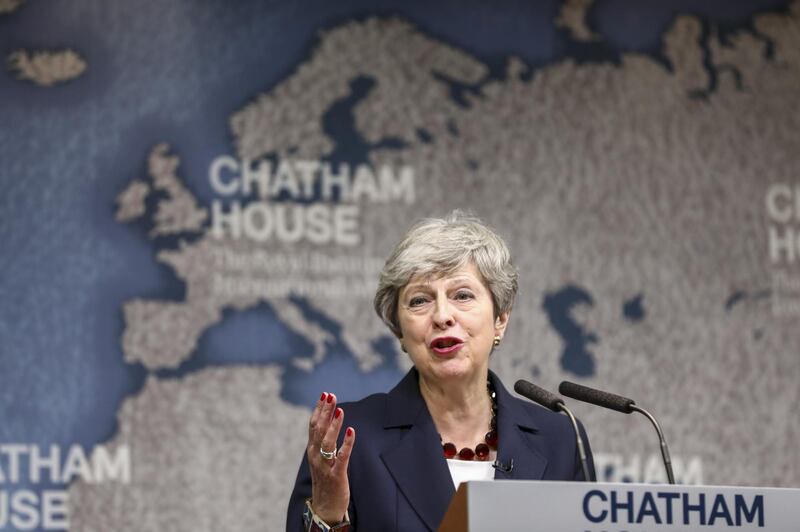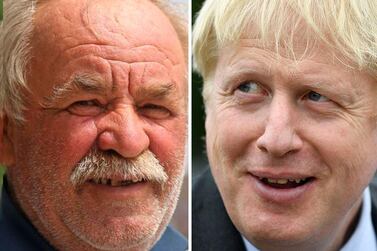Departing British Prime Minister Theresa May warned on Tuesday that governments must not take a rules-based world order for granted and lamented the rise of populism, in what is likely to be one of her last public speeches as leader.
Mrs May said she was leaving office worried by the state of politics and had serious concerns about growing polarisation between the left and right.
She blamed populists for promoting “polarised politics” that excluded compromise, viewing the world through a “prism of winners and losers”.
“It is on that score that today we do have grounds for serious concern. Both domestically and internationally, in substance and in tone, I am worried about the state of politics,” Mrs May said
“That worry stems from a conviction that the values on which all of our successes have been founded cannot be taken for granted.
"They may look to us as old as the hills and we might think that they will always be there, but establishing the superiority of those values over the alternatives was the hard work of centuries of sacrifice.”
She did not suggest any remedies for her concerns or mention that she had been accused of promoting divisive speech.
But Mrs May did admit that she should not have described EU nationals as “queue jumpers”.
Failing to push Brexit over the line was a matter of deep regret and she said she did everything she could have done, including putting her own job on the line.
Mrs May championed free markets as crucial to driving “the innovation, creativity and risk-taking that have enabled so many of the great advances of our time”.
She received criticism during her premiership for listening to the demands of the right-wing, eurosceptic wing of the Conservative Party.
Publicly, Mrs May vowed to unite warring factions of Conservative Party but had her deeply unpopular EU withdrawal agreement soundly rejected three times in Parliament.
Boris Johnson is the favourite to succeed her and has suggested taking Britain off the cliff edge in a no deal Brexit.
Mrs May warned China that the UK would voice concerns over Hong Kong and urged the US to accept need for multilateral organisations.







